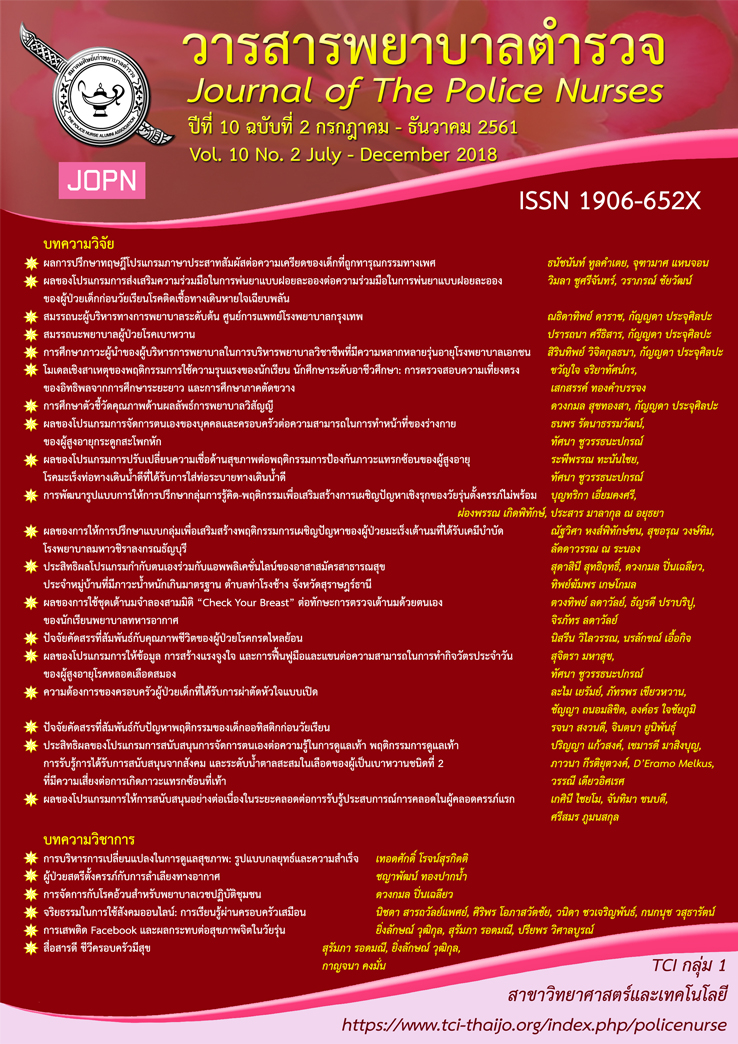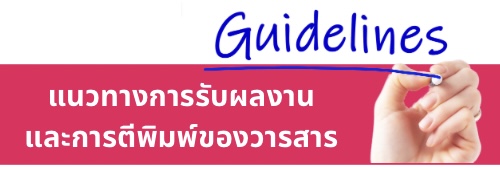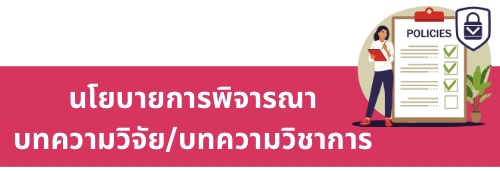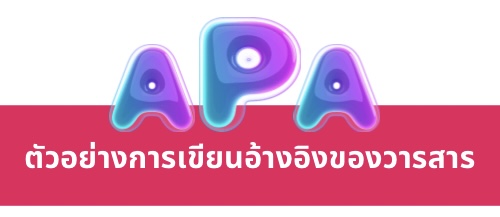ผลการปรึกษาทฤษฎีโปรแกรมภาษาประสาทสัมผัสต่อความเครียดของเด็กที่ถูกทารุณกรรมทางเพศ
คำสำคัญ:
ทฤษฎีโปรแกรมภาษาประสาทสัมผัส, ความเครียด, เด็กที่ถูกทารุณกรรมทางเพศบทคัดย่อ
การวิจัยครั้งนี้มีวัตถุประสงค์ เพื่อเปรียบเทียบผลการปรึกษาทฤษฎีโปรแกรมภาษาประสาทสัมผัสต่อความเครียดของเด็กที่ถูกทารุณกรรมทางเพศ ตัวอย่าง เป็นเด็กที่ถูกทารุณกรรมทางเพศอายุระหว่าง 12-17 ปี ที่ได้รับการคัดเลือกตามเกณฑ์ จำนวน 4 ราย โดยใช้แบบแผนการวิจัยเชิงทดลองแบบกลุ่มตัวอย่างเดียว แบ่งการทดลองเป็น 3 ระยะ คือ ระยะเส้นฐาน ระยะทดลอง และระยะถอนการทดลอง เครื่องมือที่ใช้ คือ โปรแกรมการปรึกษาทฤษฎีโปรแกรมภาษาประสาทสัมผัสแบบรายบุคคลด้วยเทคนิคการปรับมโนภาพและเทคนิคการเสริมสร้างพลังแห่งตน ที่ผ่านการตรวจสอบความเที่ยงตรงของเครื่องมือวิจัยโดยผู้ทรงคุณวุฒิ เครื่อง อีเอ็มจี ไบโอฟีดแบคและเครื่องวัดอุณหภูมิที่ปลายนิ้วมือสำหรับประเมินความเครียด วิเคราะห์ข้อมูลด้วยค่าเฉลี่ย ส่วนเบี่ยงเบนมาตรฐาน และค่าขนาดอิทธิพล ผลการวิจัยพบว่า เด็กที่ถูกทารุณกรรมทางเพศมีระดับความเครียด ในระยะทดลองและระยะถอนการทดลองน้อยกว่าในระยะเส้นฐาน ทั้ง 4 ราย และค่าขนาดอิทธิผลลดลงอย่างมีความสำคัญ ยกเว้นเด็กที่ถูกทารุณกรรมทางเพศ รายที่ 2
Downloads
ดาวน์โหลด
เผยแพร่แล้ว
รูปแบบการอ้างอิง
ฉบับ
ประเภทบทความ
สัญญาอนุญาต
ผลงานที่ได้ตีพิมพ์แล้วจะเป็นลิขสิทธิ์ของวารสารพยาบาลตำรวจ















